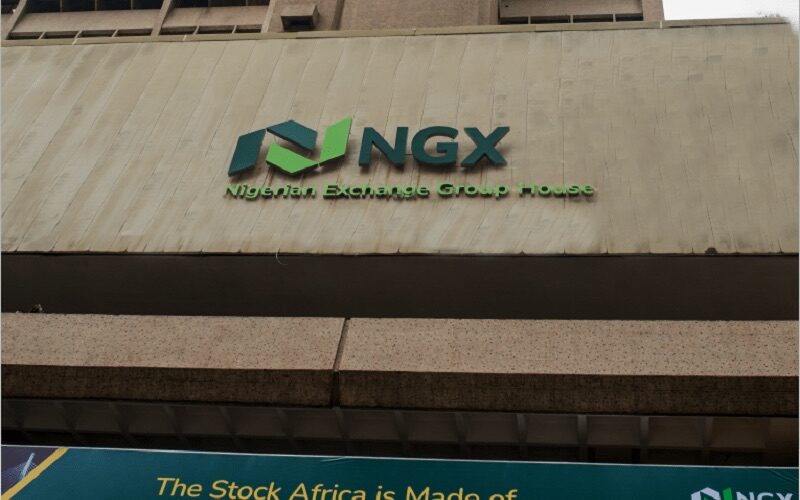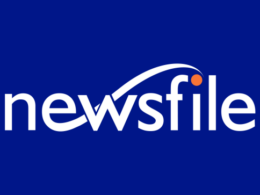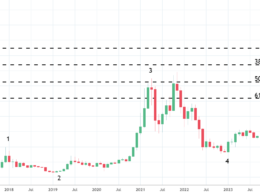*Market’s integrity, transparency non-negotiable -RegCo
By Chinwendu Obienyi and Chukwuma Umeorah
Shareholders in Nigeria’s capital market are bracing for huge losses following the recent delisting of Capital Oil Plc, Goldlink Insurance Plc and Med-View Airline Plc by the Nigerian Exchange (NGX).
The three firms are culprits of prolonged regulatory infractions and operational failures and booting them out of the exchange has effectively wiped out nearly N18 billion in shareholder value.
The decision, confirmed in a market bulletin signed by Godstime Iwenekhai, Head, Issuer Regulation Department, dated April 3, 2025, marks a regulatory crackdown on non-compliant entities deemed no longer suitable for continued listing.
It also exposes the growing risk for investors in underperforming equities.
The scathing development has equally fueled concerns about the persistent structural challenges in Nigeria’s business environment, with stakeholders suggesting that these challenges must be urgently addressed to prevent the exit of listed firms from the stock market.
The NGX stated that the affected companies were found to be operating below the listing standards required for continued trading on the Exchange. In accordance with Clause 14 of the Amended Form of General Undertaking, the NGX exercised its sole discretion to delist the companies “upon failure of the Issuer to comply with any one or more provisions” of its regulatory framework. The delisting is immediate and final.
While the Exchange did not provide specific figures on investor losses, analysis shows that the combined shareholder value across the three companies stood at N17.88 billion at the time of delisting. Investors holding equity in these firms now face the harsh reality of virtually unrecoverable capital.
The genesis
Although these three companies had their peculiar challenges leading up to the point of their exit, a source at the Exchange confirmed that the NGX over time, had provided the companies with opportunities to meet regulatory standards and avoid delisting, offering them a chance to rectify compliance issues and remain listed. But when such efforts did not yield positive outcomes, the Exchange was left with the hard choice of kicking them out to serve as sufficient detergent to potential culprits who have the latitude to mend their ways.
Regulatory red flags trail Capital Oil
Capital Oil Plc began its slide into obscurity over a decade ago. By 2015, operational challenges tied to liquidity constraints and forex volatility had taken a toll, shrinking its market presence. The company’s failure to file financial statements consistently with the NGX became a glaring red flag, with non-compliance stretching back over eight years by 2023. Trading in its shares grew sporadic, and its market capitalisation eroded steadily. Multiple attempts to restructure or pivot failed to restore investor confidence. The company’s shares became largely illiquid, with no real movement or disclosures — an indication that it had fallen off investor radars well before its final removal from the NGX.
The NGX placed Capital Oil on its delisting watchlist in 2023, and despite warnings, no recovery materialized. The NGX RegCo board greenlit the delisting process in June 2024, finalized on April 3, 2025. At the time of its delisting, Capital Oil’s market capitalization stood at N1.17 billion. Shareholders who had invested during its active years, particularly between 2008 and 2011 when the stock had relatively strong volume, are now left with equities no longer recognized on any formal trading platform.
Goldlink Insurance
Founded in 1992 and listed on the Exchange in 2007, Goldlink had initially demonstrated strong growth prospects within Nigeria’s general insurance sector. Its unraveling began in the early 2010s, as Nigeria’s insurance sector faced stricter capitalization rules from the National Insurance Commission (NAICOM). The case of the firm presents a cautionary tale of how corporate governance failures can erode the fortunes of even long-standing institutions. In 2012 when the National Insurance Commission (NAICOM) intervened in the company’s affairs. In 2016 NAICOM dissolved the company’s board after uncovering “serious infractions,” including the issuance of shares without proper valuation or shareholder approvals. The interim board later confirmed irregularities in capital management and lapses in compliance with regulatory frameworks.
In 2017, the NGX suspended trading on Goldlink’s shares due to failure to file its audited financial reports. Though the suspension was lifted 18 months after in 2019 after some filings were submitted, the company never fully recovered operationally or reputationally. At the time of its delisting, Goldlink Insurance had a market capitalization of N910 million — down sharply from its peak years. This represents a significant loss for investors who had once looked to the company as a stable vehicle for insurance sector exposure.
Med-View’s market ascent and operational descent
Perhaps the most dramatic of the three delistings is Med-View Airline which transitioned from a high-profile stock to a bankrupt airline within just a few years. Listed on the NSE in January 2017, Med-View had ambitious plans to dominate West Africa’s air travel sector. It expanded rapidly, offering international flights to London, Dubai, and Jeddah. However, by 2018, the airline began experiencing serious operational difficulties.
In its 2018 financial report, the company posted a staggering 74 per cent drop in revenue and a N10.3 billion loss after tax, citing high maintenance costs, weak passenger traffic, and forex volatility. Regulatory troubles deepened in 2019 when the airline was banned by the European Union over safety concerns, effectively halting its international business. Compounding its woes, the airline suspended nearly all operations after its sole working aircraft was grounded in mid-2019. By the end of that year, staff layoffs, debt litigations, and regulatory breaches made it clear that Med-View was no longer a viable commercial entity.
At the time of delisting, Med-View’s market capitalization stood at N15.8 billion, making it the biggest loser among the three. Market analysts say the stock’s valuation had become speculative and unsupported by any operational activity, even before the Exchange took action.
NGX stands by standards
The NGX frames this delisting as a necessary purge. Its bulletin emphasised: “The securities of the three companies have been delisted on the grounds that they are operating below the listing standards of NGX, and their securities are no longer considered suitable for continued listing and trading in the market.”
This stance underscores the exchange’s commitment to quality control, prioritizing market integrity over the survival of faltering firms. They maintain that the decision, while harsh, aligns with a pattern of regulatory enforcement. In 2023 alone, the NGX shed seven companies worth over N264 billion, and 2024 saw 14 more exits, including voluntary delistings like GlaxoSmithKline Consumer Nigeria Plc. The April 2025 action against Capital Oil, Goldlink, and Medview continues this trend, signaling that non-compliance whether in financial reporting or operational viability carries a steep price.
Implications for investors
The regulatory action by the NGX highlights several critical lessons for investors. First, holding onto shares of non-compliant companies, even for the long term, does not guarantee recovery. Second, the importance of corporate disclosures and financial transparency cannot be overstated.
For investors, particularly retail holders, the delisting means they are now left with “private” shares, units of ownership in companies that no longer have the infrastructure or credibility to trade on a formal platform. These shares cannot be sold on the NGX, and their liquidity is virtually nonexistent.
However, shareholders have always raised concerns over the persistent structural challenges in Nigeria’s business environment, saying they must be urgently addressed to prevent the exit of listed firms from the stock market. President of the Independent Shareholders Association of Nigeria (ISAN), Moses Igbrude, expressed deep concern over the rising number of delisted firms, whether voluntary or regulatory, arguing that it reflects a deeper systemic challenge. He pointed out “that economic uncertainties, regulatory burdens, and a lack of incentives for listed companies are discouraging firms from staying publicly traded.”
For instance, MRS Oil which recently announced its voluntary exit cited compliance cost among other regulatory bottlenecks as reasons for leaving the NGX.
Although the NGX may not be blamed for the operational failures and eventual collapse of some companies as with the case of Capital Oil, Medview and Goldlink, Igbrude urged the Federal Government, the Securities and Exchange Commission (SEC) and the NGX to take decisive steps to reverse the trend. He called for policies that would make the listing more attractive, including tax incentives and financial benefits that would give publicly traded firms a competitive edge over private companies.
What lies ahead for the companies?
From a regulatory standpoint, these companies can seek to relist, but only if they meet stringent conditions. This includes clearing all outstanding financial statements, resolving corporate governance issues, and paying penalties or fees associated with their default. However, none of the three have given any public indication of plans to restructure or reapply for listing. Industry experts believe such a move is unlikely.
While responding to the bulletin from NGX RegCo, market operators said the delisting of these companies underscores the exchange’s commitment to maintaining the integrity and transparency of its listings, ensuring that only compliant and financially sound companies remain on its platform.
However, they noted this leaves shareholders of the delisted issuer at losses because, in most cases, the shareholders do not recoup their investments in the companies.
A stockbroker, who spoke to Daily Sun based on anonymity, said, “With 2,299 million shares outstanding in September 2018 and a final share price of N0.2000, the company’s market capitalisation at delisting would be approximately N459.8 million. Shareholders who invested during the company’s stronger periods would have lost nearly all of their investment value.
With a final share price of N1.62 before delisting, Medview Airline shareholders faced significant losses. The complete absence of trading activity noted in October also suggested that shareholders were already unable to liquidate their holdings well before the formal delisting.”







